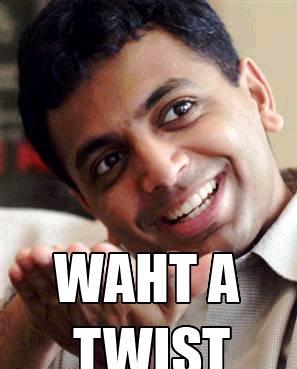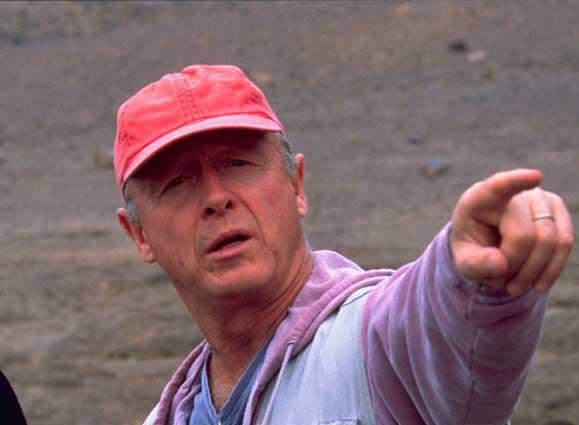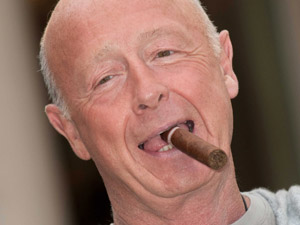In my introduction to this blog I said that defining my love
for cinema was something I couldn't do with text. So I have decided to put
together a series of moments that showcase what I define as 'Absolute Cinema.'
These can be a single element or a variety of cinematic techniques that come
together in such a way that elevates cinema. It might be an entire sequence or
just a particular shot, edit, score it doesn't even have to be on purpose. It
is a moment exclusive to cinema as an art form.
The inspiration for this post came from Peter Labuza's series of 'Cinephiliac Moments' which he describes as:
'a moment in which cinema becomes something more than entertainment and possibly more than art.'
Our criteria differ in some regard I'm sure. Set us both in
front of the same film, we'd probably select different moments. But his series
is very insightful and his writing has been a big enough influence on me to
acknowledge him.
So onto my first entry...
Absolute Cinema: The Double Life of Veronique
Kieslowski's Soul
After one particular screening of La Double Vie de Veronique
a teenage girl approached Kieslowski and told him that it had made her
understand what the soul is. I, for one don't understand what the soul is, I'm
not even sure one does exist, but Kieslowski's film is the one that makes me
want to believe.
Perhaps more so than any other director, he is an observer,
capturing the subtlest of interactions and connections. His camera often
focuses on the delicate or intimate actions of the protagonists, such as the
twirling of a string around one's finger or spilling a bottle of milk
(Dekalog VI, A Short Film About Love,)
lending to this wonderful sense of identity and place. With the collapse of the
Soviet Union he embarked on four cross-continental films exploring these themes
within a metaphysical spectrum. Something he had only suggested in his
monumental work The Dekalog (as well as the earlier No End.) The first, La
Double Vie de Veronique or The Double Life of Veronique, is the director's
greatest standalone piece and the following three make up one of the most
complete trilogies in all cinema, The Three Colours.
For Kieslowski, the soul and the spiritual are linked. It is
what defines our identity, what drives are smallest and largest actions and
reactions that ties us to a higher plane. We aren't controlled by it, we make
our own decisions (such as the decision to become a professional singer,) but
it does guide us - through colour, through music. Once again Kieslowski would use his soundtrack as an integral part of the story, and here is the first time he utilizes colour symbolically. Green and red represent both Veronique
and Weronika and their presence in each other’s lives. But it is the colour
gold that represents a higher power; it is the gold dust that lands on
Weronika's, it is a golden light that draws Veronique to the string on her
file. The defining moment, when soul and spiritual come together
comes in the second act of the film during a puppet show in the school where
Veronique teaches.
The Puppeteer Alexandre, is a character much like the Judge
from Three Colours: Red, connected to the metaphysical, even if he is not aware
of the connection himself. As he delicately controls the movements of the
marionettes, we begin to realise that the story playing out on the stage echoes
the death of Weronika in the first half of the film.
At the 2.13 mark in the Youtube clip posted, notice how the
camera pans to the left, moving from the stage to a mirror revealing Alexandre
behind. His face is illuminated by the metaphysical gold light, and behind him
is a green curtain. However it is the next shot that it becomes apparent that
Kieslowski is indicating something more. We cut to a close-up of Veronique as
she turns her head. She hasn't yet seen Alexandre, the previous shot is not her
Point-of-View, as we expect, but the soul of Weronika. It is her presence,
represented by the green backlight and of course the score by 'Van Den
Budenmayer' that draws the attention of Veronique to Alexandre. Finally, at the
end of the sequence, Alexandre pulls the transformed marionette through the
veil only to stop, staring directly into the camera. As I said above, Alexandre
is a character connected to the metaphysical, so I believe it is not Veronique
that he sees, but Werkonika.
This is cinema at its most transcendent. It is Kieslowski's
slight camera work, his use of colours, Zbigniew Preisner's haunting score and
Irène Jacob's transfixed expression that allow him to find the eyes of soul in
such a delicate manor.
Searching for the spiritual is almost an impossible task for
a filmmaker. Approaching such a universal yet entirely personal subject without
alienating the audience with a level of self-endowed importance can often
result in too heavy or too light a touch. For Kieslowski, the soul is not
something he holds over the viewership. He asks but doesn't answer, instead leaving
it for us to define ourselves. For me, it is something to take comfort in.
Love, pain, sadness and intimacy is something that connects us all, doubles or
not. For me, Kieslowski's soul is human.















